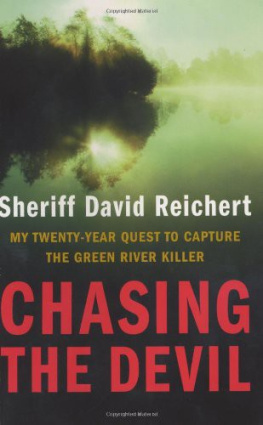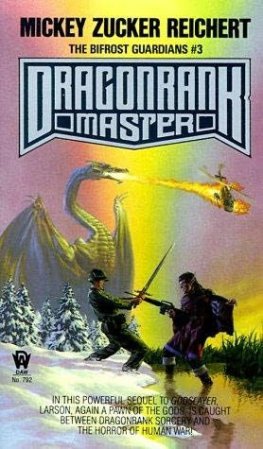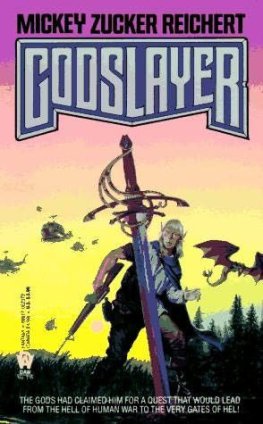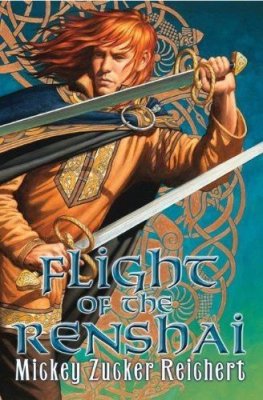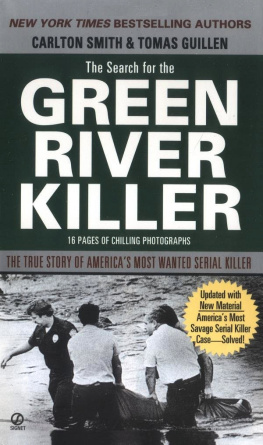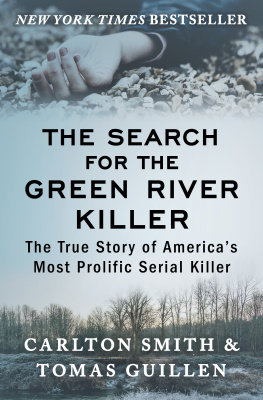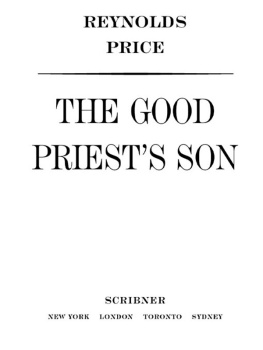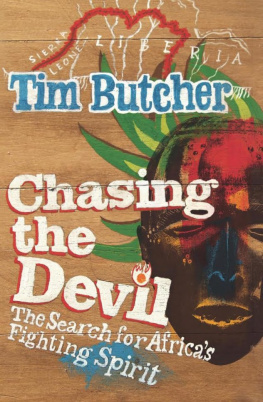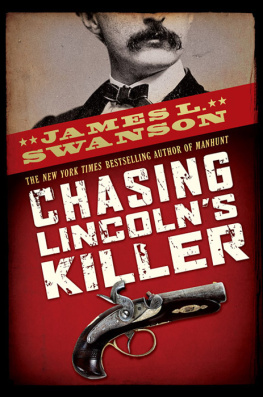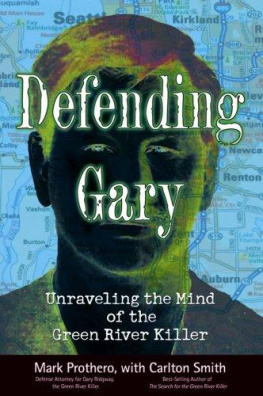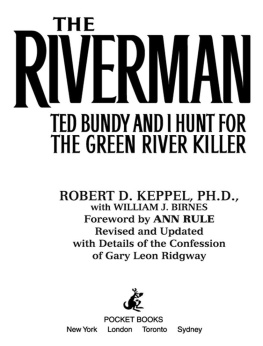David Reichert - Chasing the Devil: My Twenty-Year Quest to Capture the Green River Killer
Here you can read online David Reichert - Chasing the Devil: My Twenty-Year Quest to Capture the Green River Killer full text of the book (entire story) in english for free. Download pdf and epub, get meaning, cover and reviews about this ebook. year: 2004, publisher: Little, Brown and Company, genre: Detective and thriller. Description of the work, (preface) as well as reviews are available. Best literature library LitArk.com created for fans of good reading and offers a wide selection of genres:
Romance novel
Science fiction
Adventure
Detective
Science
History
Home and family
Prose
Art
Politics
Computer
Non-fiction
Religion
Business
Children
Humor
Choose a favorite category and find really read worthwhile books. Enjoy immersion in the world of imagination, feel the emotions of the characters or learn something new for yourself, make an fascinating discovery.

- Book:Chasing the Devil: My Twenty-Year Quest to Capture the Green River Killer
- Author:
- Publisher:Little, Brown and Company
- Genre:
- Year:2004
- Rating:3 / 5
- Favourites:Add to favourites
- Your mark:
- 60
- 1
- 2
- 3
- 4
- 5
Chasing the Devil: My Twenty-Year Quest to Capture the Green River Killer: summary, description and annotation
We offer to read an annotation, description, summary or preface (depends on what the author of the book "Chasing the Devil: My Twenty-Year Quest to Capture the Green River Killer" wrote himself). If you haven't found the necessary information about the book — write in the comments, we will try to find it.
Chasing the Devil: My Twenty-Year Quest to Capture the Green River Killer — read online for free the complete book (whole text) full work
Below is the text of the book, divided by pages. System saving the place of the last page read, allows you to conveniently read the book "Chasing the Devil: My Twenty-Year Quest to Capture the Green River Killer" online for free, without having to search again every time where you left off. Put a bookmark, and you can go to the page where you finished reading at any time.
Font size:
Interval:
Bookmark:
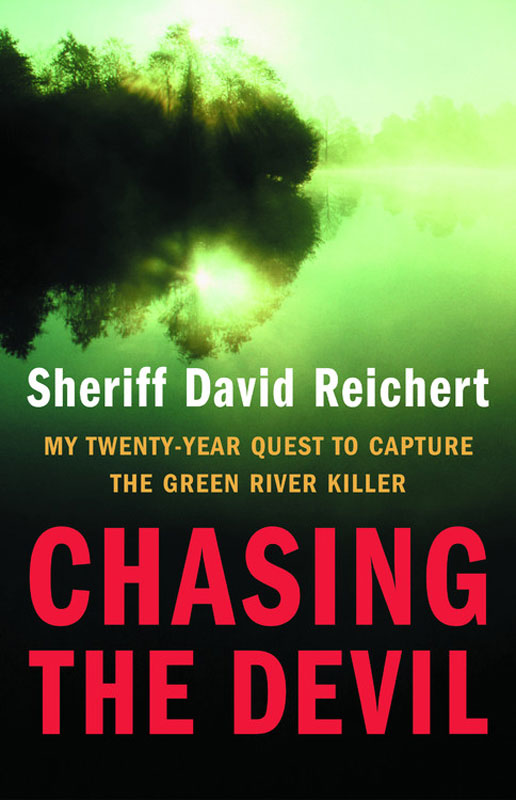
Copyright 2004 by Dave Reichert
All rights reserved. No part of this book may be reproduced in any form or by any electronic or mechanical means, including information storage and retrieval systems, without permission in writing from the publisher, except by a reviewer who may quote brief passages in a review.
Little, Brown and Company
Hachette Book Group
237 Park Avenue, New York, NY 10017
Visit our website www.HachetteBookGroup.com.
The Little, Brown and Company name and logo are trademarks of Hachette Book Group, Inc.
ISBN: 978-0-7595-1196-5
First eBook Edition: July 2004
This book is dedicated to the victims of the Green River killer.
It is my hope that the tragedy they suffered will inspire
a greater effort to prevent young women from being
caught up in a life of desperation and danger on the streets.
May we all remember these young women
and the lives they should have been able to lead.
THE RIVER
T HE GREEN RIVERS SOURCE is one mile high in the Snoqualmie National Forest and just south of a spot on the map called Stampede Pass. From one small spring it trickles westward, gathering strength from dozens of mountain creeks with names like Champion, Wolf, and Cougar. By the time it reaches flat land, it is a steady flowing stream that in the springtime, when the snow melts in the Cascades, can run twenty feet deep in some places.
The people who live in the mountain valley carved by the Green River have always had a close relationship with its waters. It was a source of fish and drinking water for Native Americans, who also used it as a highway to Puget Sound. Early settlers depended on the river in the same way, and in modern times it provides irrigation for farms and pleasure to sport fishermen, rafters, swimmers, and anyone else who loves the outdoors.
But even as it brings life to people on the shore, the river has long been a site for tragedy. In the middle of the nineteenth century, white settlers battled Indians along the river, and men, women, and children died on both sides. In more recent years, the river periodically claimed drowning victims or gave up bodies that had been dumped by those who hoped the evidence of their crimes might be swept out to sea.
My own connection to the Green River goes back to the early 1960s, when, as a boy growing up in the city of Kent, I earned money picking fruits and vegetables at farms that nestled up to its banks. Later, when I was in high school, the riverside became a haven from my long-running battles with my father. We had good times, but I was always aware of the pressures my parents felt raising seven kids on limited wages. On weekends my dad might drink a little too much and get into a fight with my mother. When I was young, I would hide. When I got older, I tried to intervene. After one especially bad fight, I left home and lived for two months in a 1956 Mercury, which I had recently bought with money from my after-school jobs. I parked in a deserted spot beside the river, went to school and work during the day, and slept in the car every night.
I knew all the isolated and hidden corners of Kent where a kid on the run might hide away. But I wasnt the type who got in a lot of trouble. In fact, I was the opposite. I was a kid who lived in the tough neighborhoods, dealt with bullies and bad guys on a daily basis, and felt it was my duty to defend myself and my fellow underdogs from them. Part of this attitude came from the tough example my father set. He never backed down and was always ready to fight for what he thought was right. But while he always seemed to try to impose his will and his judgment on others, I developed a near obsession with keeping myself and others safe.
Childhood had brought me plenty of experiences with danger. I was seven or eight on the day when, as I was shooting marbles with a friend, a man pulled up in a station wagon and tried to abduct me. An escapee from a state mental hospital, he had me halfway into the car when my mother ran up and grabbed me by the feet. She tore me out of his hands, saving me from God knows what he might have done. At around the same time, I was kidnapped by three older kids who blamed me for something I hadnt done and tied me to a tree out in the woods. I escaped, but the lesson of that experience and others was clear: We share this world with bad people, and you have to stand up to them.
With all the violence and drama I faced inside my family home and outside on the street, its little wonder that I had an early fascination with cops and firefighters, who, after all, are officially charged with keeping us safe. As a boy, one of my favorite games was called Rescue 8, after a TV show by that name. I would get my brothers and sisters and cousins to stage emergenciessome kids would hang from tree limbs or pretend to be trapped somewhereand then the rest of us would come racing to their rescue. Bikes served as police cars. We made our throats sore trying to scream like sirens.
When I was old enough, I stopped playing rescue and started jumping into bad situations whenever someone asked for help or I saw the need. When a Peeping Tom was bothering the women at my future wife Julies college dorm, I raced after the guy and jumped on the running board of his VW. (He dislodged me by crashing into a telephone pole.) On the football field, where I played quarterback, I got into the middle of a fight that broke out after we had won a game. I didnt like it that one of our smaller players was taking a beating from a giant lineman. I broke up the fight, but the lineman cracked me between the eyes with his helmet and I wound up in the hospital.
For some reason, my early interest in keeping the peace didnt move me immediately into law enforcement. In college I considered teaching, coaching, social work, and the ministry. My grandfather, whom I loved and admired, was a Lutheran pastor, and faith was, and is, the center of my life. I thought about it a lot as I served seven months of active duty in the air force. All along my girlfriend, then fiance, then wife, Julie, said I would make a good cop and encouraged me to consider that option. We discussed it often and decided the time was right when I left the air force and transferred into the reserves and returned to the Seattle area. In 1971 I took the test to join the King County Sheriffs Department and scored high enoughnumber 82to get one of 110 deputy positions. I started work in 1972 and would stay on the job for more than thirty-two years as Julie and I established a home and made a family that included our children, Angela, Tabitha, and Daniel.
On my very first evaluation my supervisor wrote: Officer Reichert has the ability to be quite a good policeman. Although he seems very quiet, his actions indicate that he will do a good job.
I was a quiet young man, and action was far more interesting to me than any conversation. But I could empathize with those in need, and that made me a good fit in a profession that still harbored a certain Wild West mentality. Thirty years ago, before training was upgraded and the department established more specific procedures, individual officers were expected to be creative and assertive. You raced to every scene at high speed with the siren wailing, and you called for backup only as a last resort. (One reason for this was that your fellow cops were probably miles away.)
Sometimes the results of this macho approach were a little less than perfect. Take the time I answered a call to a domestic dispute where a man was holding a knife to his wifes throat. A more senior officer arrived and suggested I sneak in an open window. I took off my shoes and managed to get into the house. I distracted the man. He turned away from his wife, she ran to me, and I helped her escape through a window. I then went to the living room to see if I could prevent the man from killing himself. But as I entered the room, the man saw my reflection in a window. In the fight that ensued, he slashed my throat from my right ear to my esophagus, barely missing the jugular vein.
Font size:
Interval:
Bookmark:
Similar books «Chasing the Devil: My Twenty-Year Quest to Capture the Green River Killer»
Look at similar books to Chasing the Devil: My Twenty-Year Quest to Capture the Green River Killer. We have selected literature similar in name and meaning in the hope of providing readers with more options to find new, interesting, not yet read works.
Discussion, reviews of the book Chasing the Devil: My Twenty-Year Quest to Capture the Green River Killer and just readers' own opinions. Leave your comments, write what you think about the work, its meaning or the main characters. Specify what exactly you liked and what you didn't like, and why you think so.

